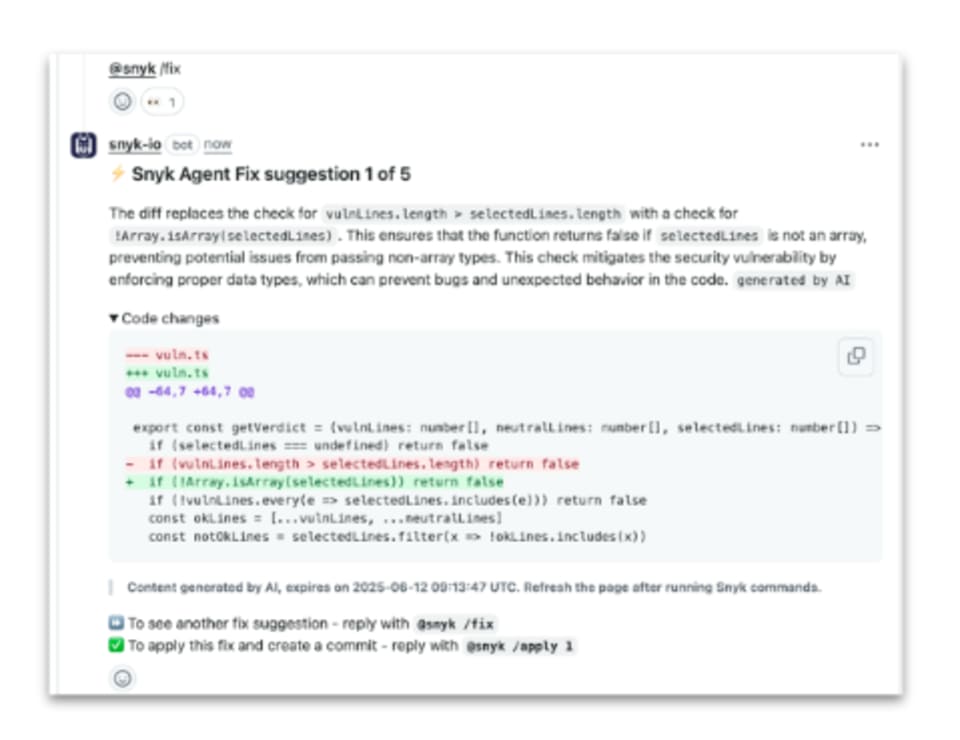Announcing Snyk CLI v1.1298.0
We are pleased to announce the latest stable Snyk CLI release, v1.1298.0.
We are introducing the following new features and improvements in this version. To learn more about bug fixes and additional enhancements beyond what is highlighted below, please reference the release notes.
General Enhancements
Updated glibc requirements: This version introduces new expectations for the underlying glibc requirements for Linux users. We recommend reviewing the updated requirements to ensure continued smooth operation. More details here.
Personal Access Token (PAT) Support: We have added support for Personal Access Tokens (PAT) for authentication. More details here.
MCP Enhancements: Further improvements have been made to the Snyk MCP for Agentic Workflows to enhance AI-driven security workflows. More details here.
Open Source Enhancements
Maven: For long-running test, monitor, and sbom scans on projects with dense dependency graphs, the Dverbose flag now provides improved output and progress indication.
Dotnet: We have improved support for comments within global.json files. Scans that previously failed when the file contained special content, such as URLs, will now complete successfully.
NPM/Yarn: Package aliases are now supported and honored by default, leading to more accurate dependency resolution in complex projects.
Node.js: The dependency graph produced by snyk test
--print-graphhas been enhanced. Node IDs will now contain type and classifier information for greater clarity.Gradle: For projects scanned with the
--gradle-normalize-depsflag, internal project dependencies with multiple artifacts under a single coordinate will now correctly show all dependencies instead of a single, randomly selected one.
Container Enhancements
Red Hat Vulnerability scanning: Starting from RHEL 10 Red Hat will be providing vulnerability data in CSAF/VEX format, and we now support this new format.
Support for new versions of Chainguard Wolf images: Chainguard has made some changes in file locations. With this new version we now accurately support scanning Chainguard images.
Release notes can be found here.
If you have any questions, feel free to reach out to the Snyk support team.
We encourage everyone to upgrade to the latest version to benefit from these new features and improvements!
Costin Busioc | Senior Product Manager

